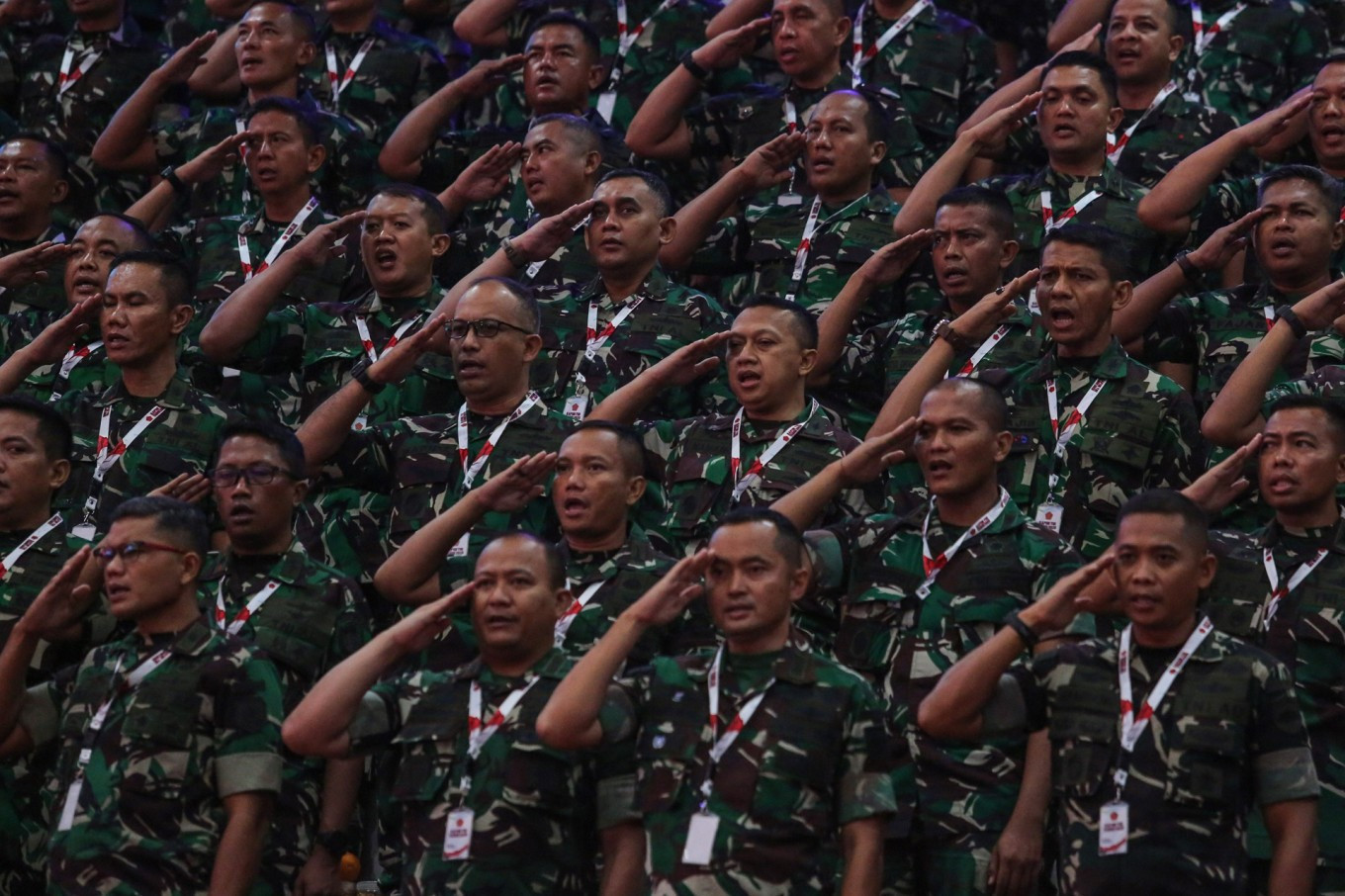News
Prabowo’s military restructuring misses its essence
Tenggara Strategics August 21, 2025 High-ranking Indonesian Military (TNI) officers salute during the force's leadership meeting at the TNI headquarters in Jakarta on Jan. 31, 2025. (Antara/Asprilla Dwi Adha) (Antara/Asprilla Dwi Adha)
High-ranking Indonesian Military (TNI) officers salute during the force's leadership meeting at the TNI headquarters in Jakarta on Jan. 31, 2025. (Antara/Asprilla Dwi Adha) (Antara/Asprilla Dwi Adha)
President Prabowo Subianto's efforts to strengthen the Indonesian Military (TNI) have included creating several new positions and agencies. While these changes are framed as a way to prepare for future strategic challenges, they have also sparked concerns.
The new positions, including the appointment of Deputy TNI Commander Gen. Tandyo Budi Revita, are widely seen as a way to accommodate non-job officers, potentially causing bureaucratic inefficiencies and undermining civilian supremacy.
The restructuring has created 160 new military units, including 49 new posts for high-ranking officers and a deputy TNI chief position that had been left vacant for 25 years. These new roles are meant to solve the long-standing issue of having hundreds, if not thousands, of high-ranking officers without a job. However, many of the new units focus on domestic and territorial command, reflecting an inward-looking military that is reminiscent of the New Order era under prior president Soeharto, Prabowo’s late former father-in-law.
Additionally, two new agencies were created under the Defense Ministry: the Defense Maintenance and Repair Agency and the National Reserve Agency. The Defense Ministry states these changes are part of Law No. 3/2025 on the TNI, a controversial law that was fast-tracked and raised fears about military personnel holding civilian positions, thereby undermining civilian control.
Prabowo has also given honorary promotions to several close associates, including Darius Bayani, a former subordinate, and retired military officers from his political party Gerindra, and Chairawan, who led Tim Mawar (Rose Team), an Army Special Forces unit responsible for abduction of government critics in 1997-1998.
The government has been criticized for not directly addressing the military's long-standing problems, such as outdated weaponry systems and poor soldier welfare. This is particularly concerning given that the Defense Ministry and TNI will receive the largest share of the 2025 budget, with an increase to Rp 247.5 trillion from Rp 166.3 trillion in 2024. The management of these funds has also been questioned, following a recent case of alleged misappropriation of funds from a military housing program, which may have led to the loss of trillions of rupiah for Army personnel.
Procurement of arms, especially through imports, is barely transparent, citing the confidentiality of the defense. The process also generally escapes scrutiny from state auditors.
Critics argue that Prabowo's approach to the defense sector lacks a clear, public plan. As defense minister, he opposed publishing a Defense White Paper, claiming it would risk exposing TNI’s strength, which he said should be confidential. Neither did he develop the Minimum Essential Force plan created by the sixth president, Susilo Bambang Yudhoyono.
Military modernization efforts under Prabowo’s leadership have been pursued without clear assessments, often based on maintaining good relations with other countries. For example, the purchase of Rafale jets from France and KAAN fighter jets from Türkiye proceeded while planned deals for Sukhoi jets from Russia and second-hand Mirage jets from Qatar were canceled due to a lack of solid planning.
In summary, current developments in Indonesia's defense sector seem to prioritize ceremonial changes and benefit certain groups, all while lacking a transparent strategic roadmap. This approach risks failing to address the core challenges of the military and its personnel.
What we've heard
Politicians within Prabowo’s inner circle say the President relies heavily on the military due to his background as a retired TNI general. He believes the armed forces can address various issues and advance the government’s priority programs.

